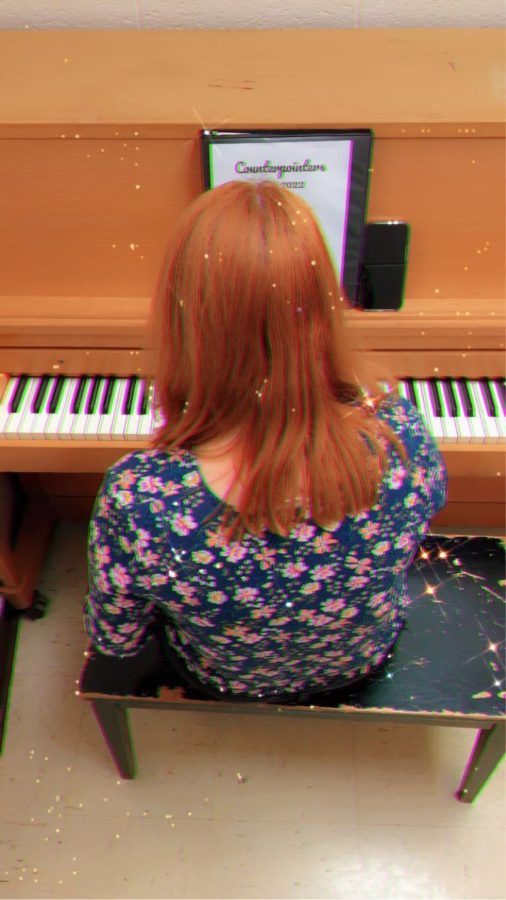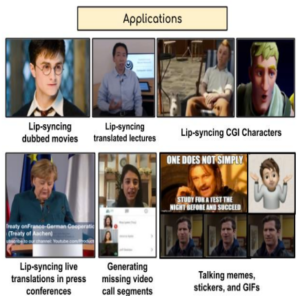It’s The Vibe: How Music Has an Effect On Our Mental Health
January 19, 2022
“Music hath charms to soothe a savage breast, to soften rocks, or bend a knotted oak.” ― William Congreve. When looking at today’s society, or even the past, one will most likely see the majority of those around them with a way to listen to music. Whether it be AirPods, Samsung Galaxy Buds, or a record player, music has a way of making someone feel things that they wouldn’t experience otherwise. But what about the science behind it? Why does music make people feel things so extremely?
STEP TO THE BEAT OF YOUR… BRAIN?
What actually happens in the brain when music is played? Why are the emotions behind it so vivid? The answer is pretty simple. According to AARP (American Association of Retired Persons), it’s because “…music can have a beneficial effect on brain chemicals such as dopamine, which is linked to feelings of pleasure, and oxytocin, the so-called ‘love hormone.’” When people listen to their preferred music, it releases chemicals in their brain that are responsible for emotions like happiness, love, ecstasy, and other positive emotions. It doesn’t really matter what kind of music, because whether it is heavy metal, old country, or even opera, it doesn’t change the fact that everyone’s musical tastes are different, and that is what produces those chemicals.
It ties into the fact that most people, even if they got married 60 years ago, are still very fond of their wedding song. Professor Suzanne Hanser of Berklee College of Music, a teacher of musical therapy, and president of the IAMM (International Association of Music and Medicine), says that “The music that was played at your wedding or in a religious service, or even at a concert you attended or a dance you were at — that music remains preserved for those neuropathways that connect that music with really positive feelings.” This is the reason that people are able to experience the same feelings they had when they first danced to their wedding song. The emotions they felt have a preserved “path” in their brain, and are activated during that specific song.
All of this goes into the knowledge that music is extremely helpful for the physical portion of one’s mental health. According to Andrew E. Budson, M.D., “The parts of the brain involved in emotion are not only activated during emotional music, they are also synchronized. Music also activates a variety of memory regions. And, interestingly, music activates the motor system.” Music is capable of literally helping keep a brain healthy. This is the reason people find it so hard to stay still when listening to music, whether it’s upbeat or not.
It’s not just memory and muscle movement that music helps with. Dr. Budson also mentions that “… because music can activate almost all brain regions and networks, it can help to keep a myriad of brain pathways and networks strong, including those networks that are involved in well-being, learning, cognitive function, quality of life, and happiness.” Not only does music help with the physical part of mental health, it helps with the mental part of physical health. The type of music that people listen to is likely to have an impact on their mental health, whether it be a positive or negative impact.
MUSICAL TEARS
How does music actually stimulate one’s emotions? One answer is that music can be used as a type of therapy, to help people calm down from panic or anxiety attacks. For SPASH senior Grace Babl, this is definitely a strategy that they use. “If I’m having a bad day, all I have to do is turn on my Elton John cd in my car and all I feel is zen, so music is really helpful in helping me let out emotions that I’ve been keeping in all day, and it’s just a release for me. Or if I need to calm down from a panic attack, music helps to focus me.” Babl talks about music being a sort of tool in helping with mental health disorders and is extremely helpful in those types of situations.
But sometimes the music that someone is listening to can have an impact on what they’re feeling. SPASH piano and choir teacher Mrs. Pionek says that she believes “if one continually listens to sad music, [they] may get stuck in a rut of thinking about the negative things in [their] life.” She goes on to mention that “if you listen to more upbeat music, this will generally help lift your spirits.” This really supports the evidence that music is an enormous help with emotional issues. If people who don’t have any mental or emotional “problems” are able to be affected by the music they’re hearing, then what’s saying that the people who do have those issues won’t?
Professor Hanser has released advice for people, teaching them just how to use music in a therapeutic way.
To boost music’s mental-health benefits in your life, Hanser says anyone can adapt some of the techniques used by trained music therapists. One of them is what she calls ‘deep’ or active listening — instead of putting on music as background noise, set aside time to concentrate on what you hear, taking note of the feelings, memories, and bodily sensations (whether that’s a slowing of your heart rate or the urge to get up and dance) that arise as you listen.
It’s like being out in nature and not taking anything with you. But instead of focusing on surroundings, the focus is on hearing. Take note of how the music moves, how slow it is, how the melody changes. It’s an excellent way to work on breathing and remaining calm, and only having one thing to focus on instead of being bombarded with noise from all over the place, is a great help.
IS YOUR MUSIC STRANGE, OR ARE YOU?
In a study done by Mulder et al. in 2007, they found that individuals who have a more “interesting” taste in music, are more likely to externalize symptoms of psychopathology, rather than internalize them. “In an overview of the literature on music and mental health, Mulder and collaborators noted that ‘non-mainstream’ music preferences have been more consistently related to externalizing than to internalizing psychopathology (Mulder et al., 2007).” But in today’s world, who’s to say what is “mainstream” versus “non-mainstream” music? The music of today is so diverse and so different that it’s difficult to tell whether or not someone is a psychopath or not. The report goes on to say how “music can involve emotion regulation and coping; songs may have social cognitive influences; and music can have psychotherapeutic effects.” This goes to show that one’s music taste can actually have an influence on who they are. They reflect the music, and in turn, the music reflects them.
OVERTURE OR ARIA?
Though many people don’t know it, the reason so many people are addicted to listening to music is because of the feelings it gives them. By extension, they are also preserving their mental health, because of those feelings. Mental health is so important, and music is a way to help with disorders, conditions, and the like. All of this research is why music is now being used as a therapeutic “exercise”. It helps a lot.





































































